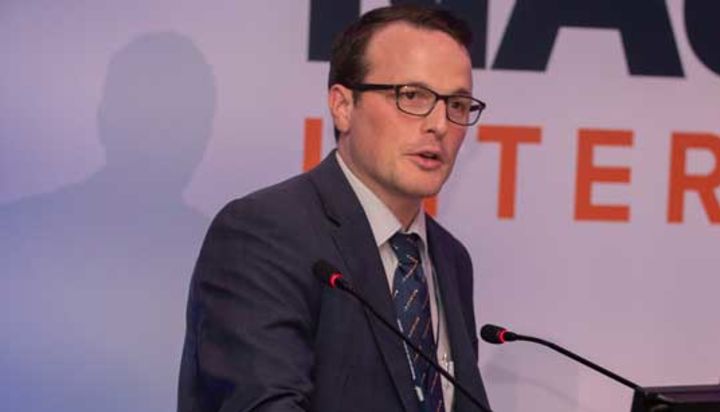- Topics
- Campaigning
- Careers
- Colleges
- Community
- Education and training
- Environment
- Equality
- Federation
- General secretary message
- Government
- Health and safety
- History
- Industrial
- International
- Law
- Members at work
- Nautilus news
- Nautilus partnerships
- Netherlands
- Open days
- Opinion
- Organising
- Podcasts from Nautilus
- Sponsored content
- Switzerland
- Technology
- Ukraine
- United Kingdom
- Welfare

Figures released by the UK Department for Transport last year show that the number of female officers serving at sea remains stubbornly low. Despite considerable efforts from a number of organisations including Nautilus, female representation amongst UK officers held at just 3% in the 2022 seafarer statistics, with female deck officers and engineering officers making up 5% and 3% of the workforce respectively.
There are, of course, many reasons why a career at sea is likely to attract more males than females overall. However, there are other professions in the same position, and many of these have performed far better than the maritime industry in their efforts to increase female representation.
For example, the proportion of females in the UK armed services has increased from 6% in the early 1990s to almost 13% today, female police officer numbers have increased from 17% in 2000 to 37% today and, the fire service has increased the proportion of female firefighters from 1.7% in 2002 to 8.2% in 2022.
These organisations have been able to make progress that the maritime industry could only dream of because they have been willing to identify and make efforts to remove the structural barriers that have prevented women from entering those professions. This is in stark contrast to many shipping companies, who are quite happy to sign up to the latest initiative as long as they don’t need to change anything or spend any money.
In fact, harrowing testimonies we have received from officer trainees in recent months show that some companies are failing to meet the most basic of standards and are unable to provide anything resembling a safe working environment for their female recruits. Furthermore, they don’t seem to show much interest in addressing the situation when it is brought to their attention.
The scale of discrimination towards female seafarers is well known, and a number of high-profile incidents such as the 'Midshipman X' case have garnered international attention which has motivated the IMO to prioritise amendments to the STCW convention to include training on sexual assault and sexual harassment.
In the UK, if we wish to make some actual progress, we should start with SMarT funding. It should be a condition for any company wishing to receive this government subsidy to demonstrate that they are able to provide a safe and secure working environment for all of their recruits, both male and female.
- see our Letters to the editor for more professional and technical discussions
- members are urged to join the next Nautilus Equality and Diversity Forum on 11 April 2024. Save the date and look out for email invites from your Union organisers
Working for members at the IMO in 2024
Nautilus frequently has a presence at high-level International Maritime Organization meetings as part of the International Transport Workers' Federation or International Federation of Shipmasters' Associations. The following meetings are particularly important to Nautilus members, so if you have a point to raise about the subjects being covered, please contact the Professional and Technical department at protech@nautilusint.org
| 5-9 February 2024 |
Sub-Committee On Human Element, Training And Watchkeeping 10th session (HTW 10) Work will continue on the comprehensive review of the STCW convention. It is expected that the areas to be reviewed and the workplan will be agreed here |
|
27-29 February |
Joint ILO/IMO Tripartite Working Group to identify and address seafarersʹ issues and the human element At this meeting, the Working Group will look at matters relating to bullying and sexual harassment |
| 18-22 March 30 Sept-4 Oct 2024 |
Marine Environment Protection Committee (MEPC) – 81st and 82nd sessions MEPC meetings will begin work on developing and adopting measures to meet the recently adopted IMO Greenhouse Gas (GHG) Strategy |
| 15-24 May 2-6 Dec 2024 |
Maritime Safety Committee (MSC) – 108th and 109th sessions MSC meetings will continue the work to develop a non-mandatory code for maritime autonomous surface ships (MASS). The MSC will also look at developing a safety framework to ensure that measures aimed at the reduction of GHG are implemented in a safe manner |
Tags
